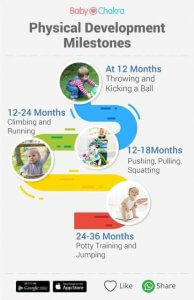How do I get my kids interested in doing their homework?

Introduction:‘
How do I get my kids interested in doing their homework?’ Have you ever asked yourself this question? Then continue reading this article because it might be just for you!
Let me start by sharing an incident with you.
There is a principal whom I truly admire, Ms.Jessica Simmons of Wisdom World High School at Wakad in Pune. A few weeks back, we had the opportunity to meet. We were discussing about students, studies, parents, and I asked her, “How do you convince your students to do their homework regularly?
What she said that day, has been deeply entrenched in my mind. I genuinely believe that if teachers think that way, the world of education can be very different.
But, what did she tell me?
She said, “Parents are not equipped to be teachers. Parents are not the right people to teach a subject, to a teacher or to a student. Parents don’t know child psychology. The subject that is being taught, the parents may not have been good at that subject. Parents have so much stuff to deal with in their own day-to-day lives.
Early in the morning or late in the evening, if they have to sit with their child to take their studies then honestly that is too much of them. The responsibility of teaching a child lies with the child and the teacher at school. That responsibility does not lie with the parent.”
I asked her a million dollar question, “How much should be the right quantity of homework?”
She answered, “Maximum one hour. Preferably, a child should go home and just go through the books and read the pages. Flip through the topics and be assured, that yes, this XYZ is a topic I understand. And if they find something that they are doubtful about, make a note so they can come to school the next day and ask the teacher. So if parents can do this job with their children, sit with them and ask, ‘What did they teach you at school today? What did you understand?
Tell me where you are having an issue and where you need more details.’ Avenues open if they can make the children do homework in the matter of a conversation. They will find their studies a little more immersive, a little more involving and a little more interesting. More importantly, they will find their parents as partners in their studies.”
1. Let your child become the teacher:
One of the tricks which many parents practice and agree on is when they tell their children, “I didn’t understand this topic even in my school days. Oh my God, this looks a little difficult. Can you please teach me that, can you please explain that to me.” The best way to learn anything is by becoming a teacher in that subject.
And when the parents can involve their children in a way where they have to be a teacher to their own parents; the entire experience will be on a different level altogether. They are not just listening for themselves and their personal clarity. They are thinking that when I go back home I will have to explain this to my mother, my father or my grandparent.
So if the child says, “This topic, I also have not understood.” We will respond: “Let me try to see if I can explain a little but why don’t you go to school and ask your teacher. So that you can come back the next day and then teach it to me/us/them.”
Children will now have the curiosity to learn. They won’t learn to score marks. They will learn to pass on their wisdom. They will learn to teach their own parents! They will feel responsible for learning and being there in school. And the entire environment at home will be incredible!
2. Create a healthy learning environment:
For many families, the atmosphere is very negative. Just for this one reason! Parents, children, and homework don’t gel well together. The environment in the house is negative because the child is not studying and fulfilling the expectations of the parents. Hence the important things in life like values, attitudes, how to plan to save, and teaching problem-solving tricks are left out.
Things which the parents can do brilliantly well and they should, because there is no school that can give all these things. All these things which parents can exclusively teach their children but they don’t. Because they don’t have time as they are busy taking over the homework of the children.
So if you feel there is someone in your life who might do well after learning more about these thoughts, feel free to share this article. You never know how many thousands of people might thank you when they discover these ideas. Ideas that might help them understand their situation better and take better actions in the future. All of that just because you shared this article with them.
Sometimes we make studies look like a big pressure. We make it look like a punishment. I have heard parents tell their kids,” If you don’t behave appropriately, you will have to study for one more hour or because you lied, you will study the entire night.”
When you say something like that, you are making studies a punishment. How can you expect kids to enjoy something that is a punishment?
3. Make studies enjoyable and fun:
Pele, probably the best footballer in the world, teaches us a very important lesson in this regard. He was so good that at a very young age, he was already being asked to play for professional football clubs.

His father agreed when one day the club people came to recruit him. They negotiated and decided on a fee for his appearance. His father told them to just hand the money over to Pele at the end of the day. Pele played the match, and did really well, scoring a goal. He was incredibly happy and excited about his first professional match. At the end of the day, the manager gave him the match fees. He said, “Here take this money.” Pele was shocked. “Money, for what?”
“Well, you played football. Plus you played so well. You will be paid for that. I owe you money. I spoke to your parents and we decided on this amount. So take it.” Pele took the money and put it in his pocket. And then he looked at the manager and said, “I would have played football for free. Why the hell should anyone in the world pay me for this? I would be grateful to you if you just allow me to play.”
And then he said something that every parent should know. Pele looked towards the horizon and said, “If only my mother had told me to go play with my books. I would have seen my studies as a game and as fun. I was told to just go and study.
As parents, if we make studies and homework look very serious, obviously the child is not going to enjoy it. Pele was right. He was bang on target. “If only my mother had told me to go and play with my books, I would have studied much better and been a good student too.”
Homework should be fun, homework should be interactive. It should be driven by curiosity and not because it is a to-do task. Then and only then will your child completely enjoy the process of doing homework. If you make it serious and make it look like a punishment then it’s always going to be complicated to study.
So how do you get your child to complete their homework?
Now, homework is not a chore. It is not something that is exclusively the responsibility of a child. It is not supposed to sound like – “Go do four pages of writing.” It is supposed to bring the whole family together and foster an environment of learning.
When the environment and studies and lessons to do are fun, and everybody is involved, I don’t know how many marks he will score. But I can tell you that your child will grow up to be an educated person. I don’t know how he will write the answers but I know that when he grows up he will become a very wise person.
I don’t know which college they will go to study but I can tell you that they will be successful and happy. I can’t tell you who they will marry but I can tell that they will have a very happy married life.
So let homework be a matter of joy, togetherness, curiosity, discovery, and fun. You will find your child not only do their homework but look forward to their studies as well.
A wise man once said that studies are not about stuffing in knowledge but kindling the curiosity of a person. Similarly, homework is not about doing the task at hand.
It is an opportunity for parents to ensure that their kid doesn’t only do what the teacher expects. That the child actually learns and is excited about studying, sharing, discovering, cracking jokes within themselves and such.
Oh, what a beautiful thing it would be if we could create that environment for our children!




